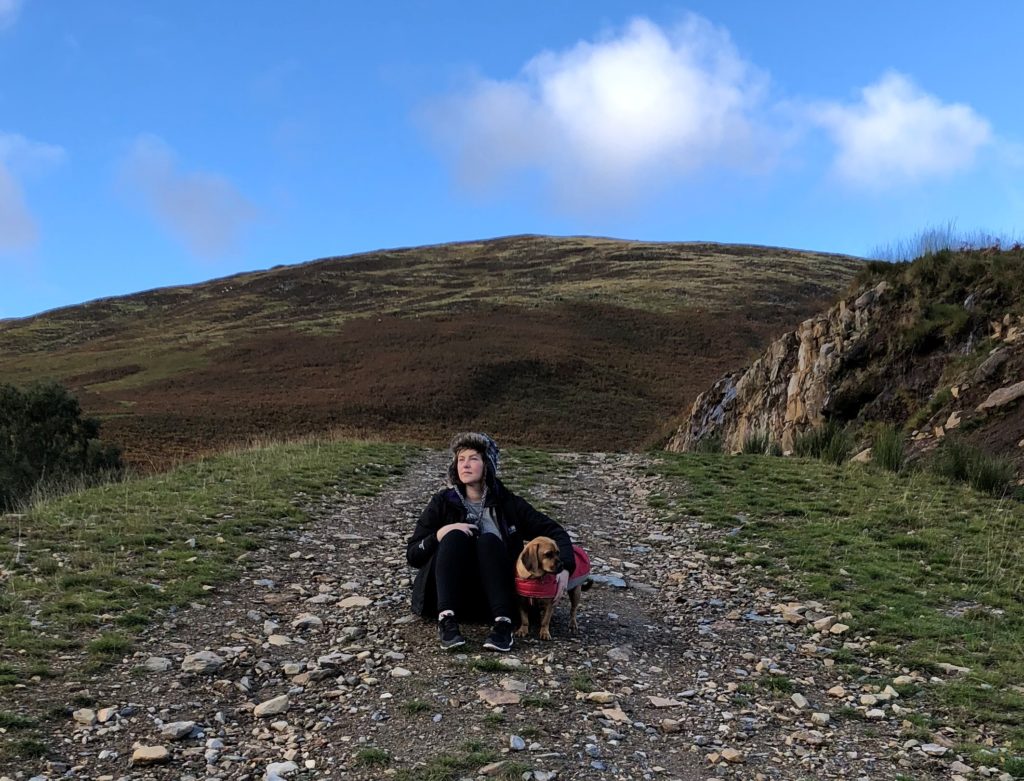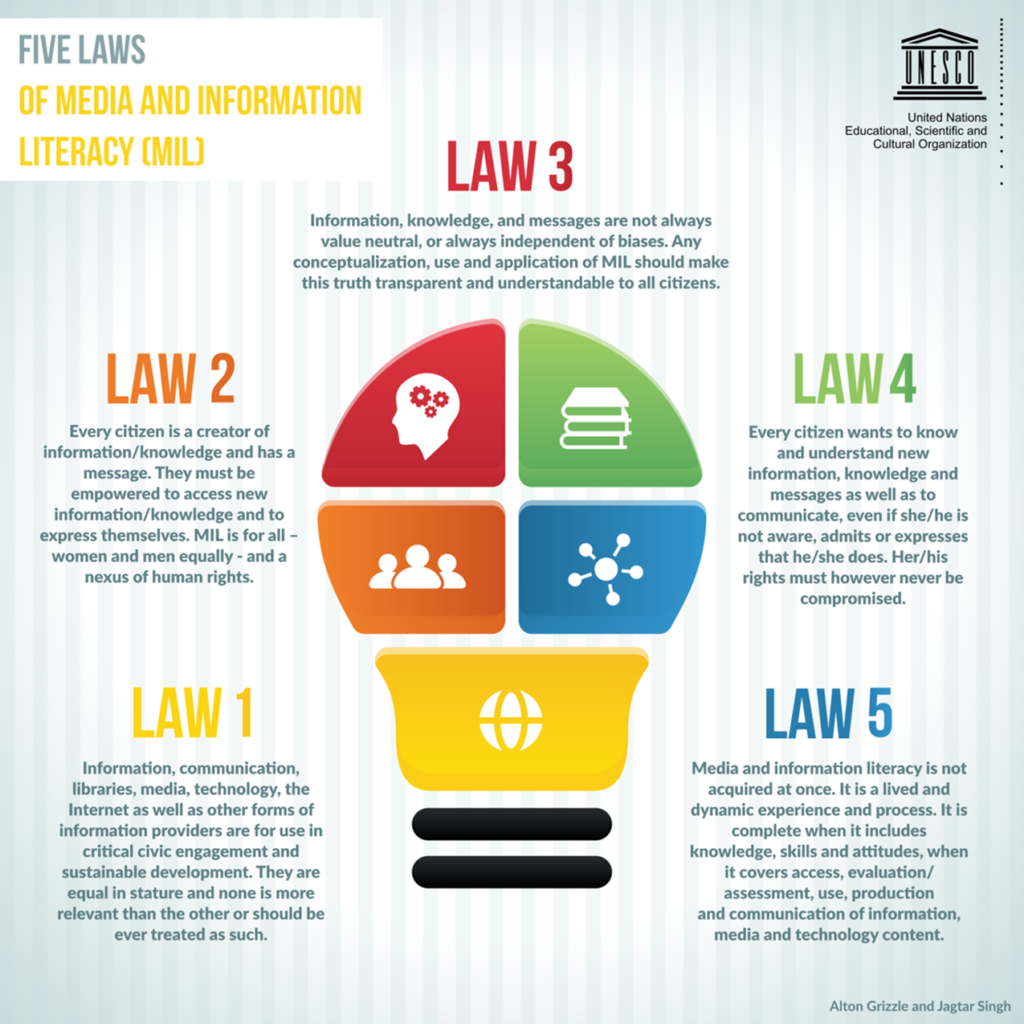New Voices RGU Student Series – Alanagh Wilson
Category: New Voices, New Voices, RGU Student Series
In the Robert Gordon University Student Series blog, we share the views of RGU students from the MSc in Information and Library Studies course.
Today, we hear from Alanagh Wilson, who lives in Falkirk, has an undergraduate degree in History, and is currently an online distance learning student on the RGU MSc course.

Alanagh shares her views on disinformation and the vital role that libraries and librarians play in tackling the problem.
Media and Information Literacy: A Matter of Life and Death
As COVID-19 continues to make a devastating impact, it is increasingly necessary that people around the world are able to navigate, assess and understand the deluge of information and disinformation that they are confronted with every day.
The role of the contemporary librarian or information professional is extremely important, but it is also imperative that librarians are not only developing their own media and information literacy skills so that they can pass these skills on to the public, but they are actively promoting themselves and their industry as key players in combating what UNESCO has termed a ‘disinfodemic’ (UNESCO, 2020). One of the ramifications of this ‘disinfodemic’ could be that people choose to ignore expert advice around COVID-19 and in extreme cases even refuse one of the newly developed vaccines due to the disinformation that they have been exposed to.
UNESCO (United Nations Educational, Scientific and Cultural Organization) defines Media & Information Literacy as the “knowledge, skills and attitudes […] necessary for life and work today” and offers the following model or ‘laws’ of media and information literacy as a comprehensive definition. In response to the COVID-19 pandemic it has launched the MIL Alliance Response to COVID-19, which offers online resources in an effort to combat disinformation. The MIL Alliance is an international cooperative that aims to ensure all citizens have access to media and information competencies.
It is clear that public libraries around the world have also taken steps to fight disinformation around COVID-19 by holding seminars or Q&As, and when people were not able to access a library physically, by developing dedicated websites around the topic (Shoenberger, 2020). Their approach is not prescriptive, but educational. The aim is to enable and empower people, to develop their media and information literacy skills, so that they are able to efficiently assess and evaluate information in all contexts. In the context of health or health literacy, it is essential that people can do this to avoid causing harm to themselves or others through ill-informed actions (Spring, 2020).
I work in an administration role within a healthcare service and know from experience how dangerous COVID-19 can be. Colleagues have been affected personally and professionally, and the pressures of our extended workload and associated stress have taken their tolls on our own health and wellbeing. I have, however, had discussions recently with family and friends who continue to express doubt about social distancing, restrictions or new vaccines because they have ‘seen a post on Facebook’, or a prominent figure whom they admire has also expressed doubts. In these situations, I have observed a direct connection between people’s doubts and the volume of disinformation they are exposed to each day. An Ofcom study states that in the UK, during the pandemic, 66% of people reported seeing COVID-19 disinformation daily and more worryingly, 55% of these people reported that they did nothing about it (Ofcom, 2020).
Public libraries and librarians can provide people with the tools to do something about it by means of creating resources to develop media and information literacy skills, and by actively promoting these services to help combat the spread of disinformation.
In Scotland, SLIC (the Scottish Library and Information Council) describes public libraries as ‘the most popular civic resource’ with an estimated 28 million visits per year (2015). The importance of their aim to move away from the library as a ‘warehouse of books’ and encourage librarians to be ‘vocal leaders in the digital age’, has been reinforced in light of the current pandemic, and will be extremely important now and in the years to follow.
As we move past COVID-19, recent vaccine related news is extremely welcome, but we must bear in mind that it is increasingly unlikely that there will soon be a ‘return to normality’. However, this is not necessarily a negative thing. In an increasingly connected world, where the pace of information is sometimes matched by disinformation and the health-related threats of COVID-19 are increasing, more and more people are also becoming able to access information and connect with each other, learn from each other, and share good information and valuable experiences. Public librarians and information professionals are well-placed in their communities and can build on this position, as well as building on their own media and information literacy skills, to continue helping people to build a world in which media and information literacy can be a matter of life or death.
References
OFCOM, 2020. COVID-19 news and information: consumption and attitudes. [online]. London. Ofcom. Available from: https://www.ofcom.org.uk/__data/assets/pdf_file/0031/193747/covid-19-news-consumption-week-one-findings.pdf [Accessed 17 November 2020]
SHOENBERGER, E., 2020. Libraries Fight Misinformation on Coronavirus. Library Journal. [online]. Available from: https://www.libraryjournal.com/?detailStory=libraries-fight-misinformation-on-coronavirus [Accessed 16 November 2020]
SLIC, 2015. Ambition and Opportunity. [online]. Glasgow. SLIC. Available from: https://scottishlibraries.org/media/1133/ambition-opportunity-scotlands-national-public-library-strategy.pdf [Accessed 18 November 2020]
SPRING, H., 2020. Health Literacy and COVID-19. Health Information and Libraries Journal [online]. Available from: https://onlinelibrary-wiley-com.ezproxy.rgu.ac.uk/doi/full/10.1111/hir.12322 [Accessed 20 November 2020]
UK PARLIAMENT, 2020. COVID-19 Misinformation. [online]. London. The Parliamentary Office of Science and Technology. Available from: https://post.parliament.uk/covid-19-misinformation/ [Accessed 17 November 2020]
UNESCO, 2020. UNESCO. [online]. Paris. UNESCO. Available from: https://en.unesco.org/about-us/introducing-unesco [Accessed 17 November 2020]
UNESCO, 2020. UNESCO – Media and Information Literacy Alliance | Response to COVID-19. [online]. Paris. UNESCO. Available from: https://en.unesco.org/news/stop-covid-19-disinformation-root-media-and-information-literacy [Accessed 17 November 2020]
